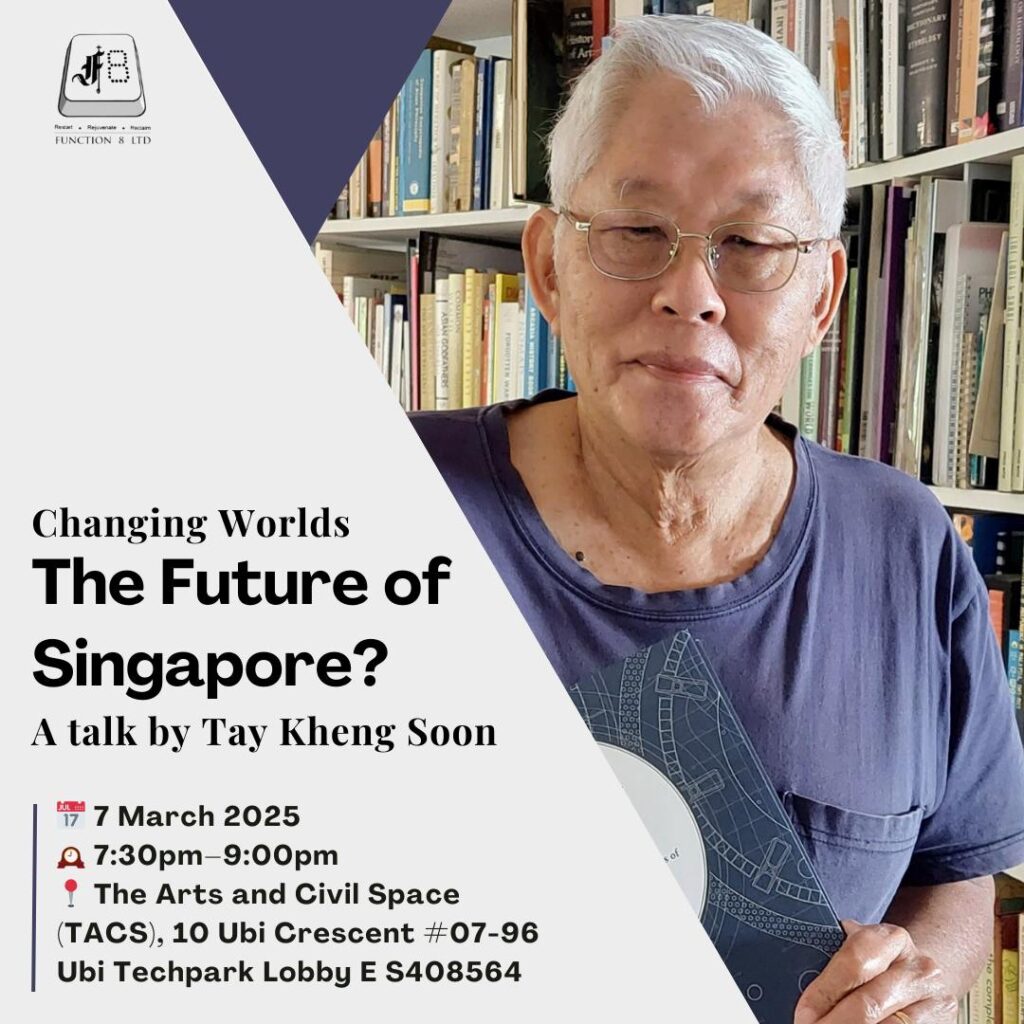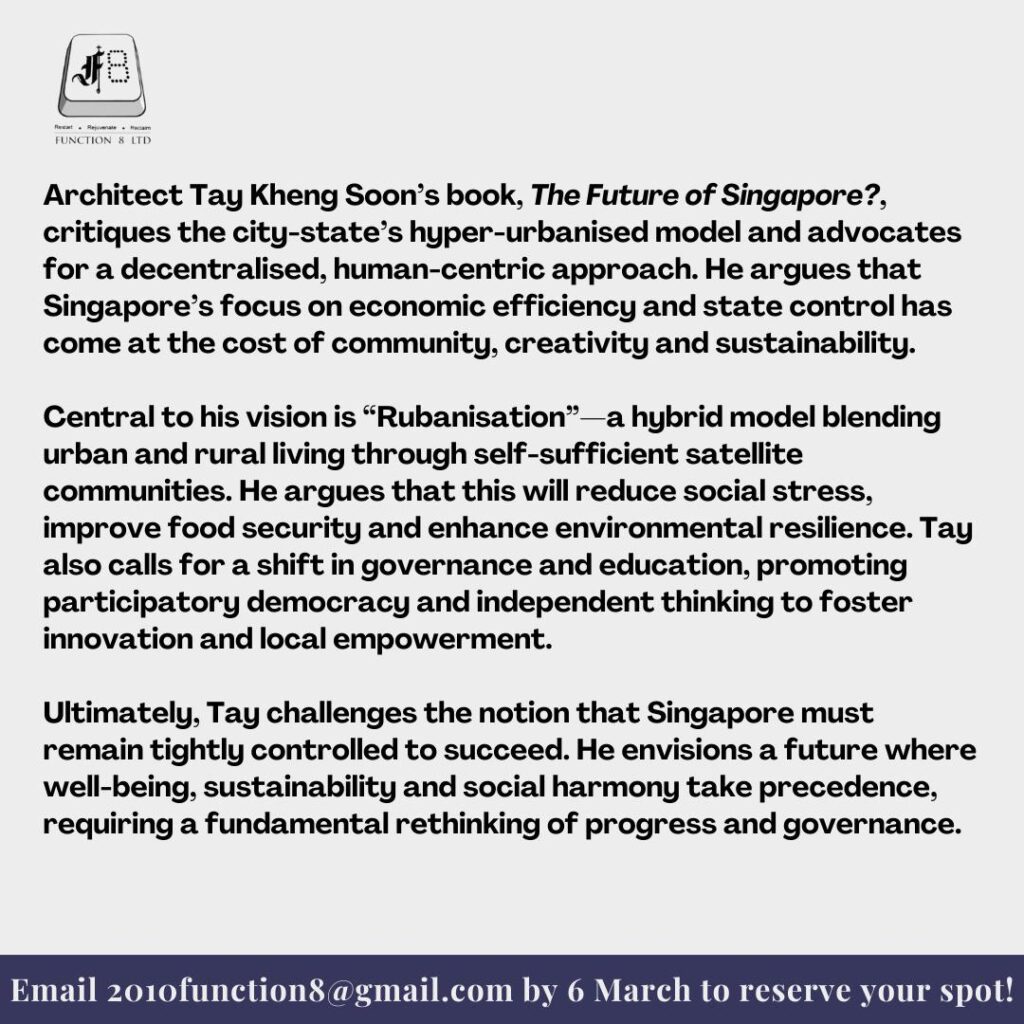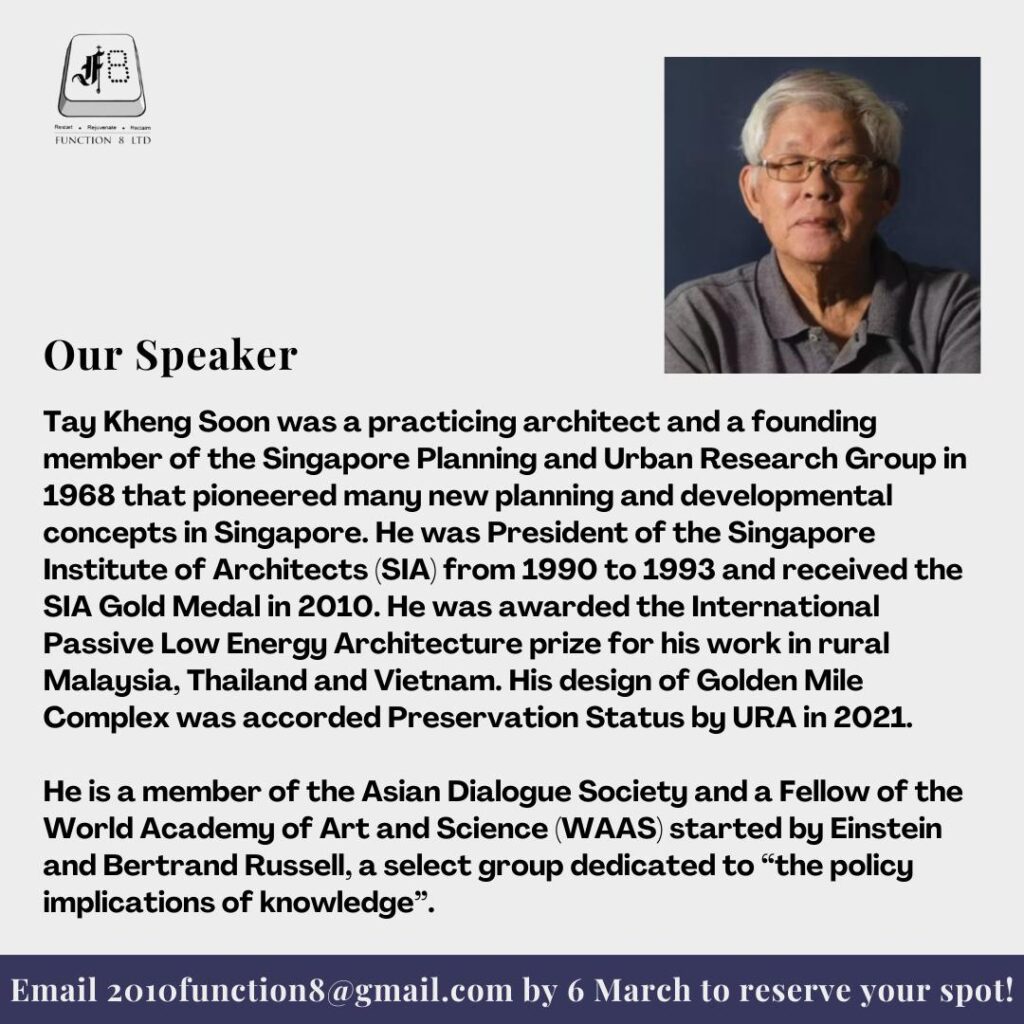Tan Tee Seng
On Friday, 7 March 2025, Function 8 organised a talk at The Arts and Civil Space (TACS) by Ar Tay Kheng Soon on his latest book, Future of Singapore? This event marked the first installment of Function 8’s “Changing Worlds” series for the year.

The book’s provocative title, Future of Singapore?, is fitting for an author like Tay Kheng Soon. A pioneering architect from Singapore Polytechnic’s first architectural school cohort in 1964, he was adjunct professor of National University of Singapore, a practicing architect, and a public intellectual known for his radical and critical views in a highly conservative society.
This edition of his book is unconventional, reading like an anthology of ideas gathered from his 60 years of experience in urban planning, architectural design, and intellectual activism. His career has closely paralleled Singapore’s nation-building journey. During the two-hour session, the audience was given a thought-provoking history lesson, exposing perspectives rarely found in school textbooks and challenging mainstream narratives. For instance, he questioned the relevance of modern education and highlighted the deficiencies of Singapore’s system in preparing for the future.
One of the most compelling ideas he put forth was his philosophy of education: the need to develop the head, the heart, and the hands in unison. Singapore’s education system primarily rewards those who excel at rote memorization, filtering out “elites” through high-stakes examinations while neglecting emotional intelligence and practical skills. This narrow approach is increasingly inadequate in the age of artificial intelligence and raises concerns about Singapore’s future competitiveness.
Tay also proposed transforming Singapore into an “enterprise city”—a hub that attracts the best and brightest from the region to live, learn, and innovate. He explored ideas on how Singapore can truly become a smart city with intelligent, creative citizens. His book is filled with bold and thought-provoking concepts that deserve serious consideration, perhaps even as part of our school curriculum.
Tay Kheng Soon’s insights challenge us to rethink fundamental aspects of Singapore’s development. If we are to secure a resilient and dynamic future, we must embrace innovative and holistic approaches to education, urban planning, and social progress.



Leave a Reply